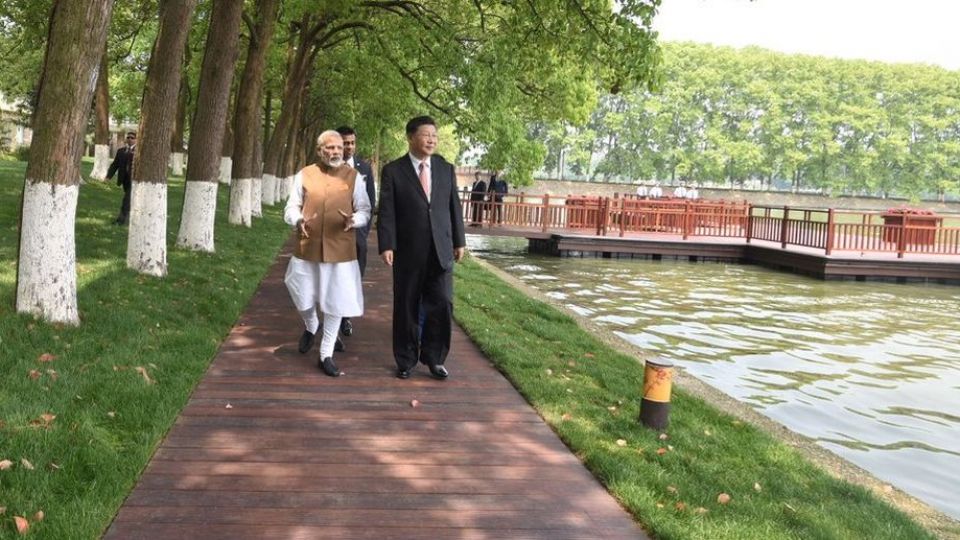May 1, 2018
The biggest takeaway from the unstructured conversations was an agreement to improve communications between the militaries.
Following the unprecedented “informal summit” between Indian Prime Minister Narendra Modi and Chinese President Xi Jinping, the tone of ties between the two countries has changed.
Bilateral relations had hit a low last August, when the armies of the two countries virtually came to blows during a 73-day stand-off at Doklam, a region claimed by Bhutan but under the control of China.
Modi travelled to Wuhan in central China for one-on-one-conversations with Xi – with none of the fuss and frills of a state visit such as 21-gun salutes – to discuss bilateral, global and regional issues. There was also a meeting between the two leaders and their small delegations that helped usher in a thaw in the relations.
The biggest takeaway from the unstructured conversations between the two leaders was an agreement to improve communications between the militaries and maintain peace at the disputed border. The two countries have gone to war once over the border in 1962.
“China and India are both important engines for global growth and we are central pillars for promoting a multi-polar and globalised world. A good China-India relationship is an important and positive factor
for maintaining peace and stability in the world,” Xi said.
“The friendship between the two countries should continue to grow like the Yangtze and Ganges flowing forward forever,” Xi added.
Modi endorsed this sentiment with: “As India and China represent 40 per cent of the world’s population, they need to try to work together to tackle global problems.”
Chinese officials described the meeting as a “milestone in relations”. Chinese Vice Foreign Minister Kong Xuanyou said Beijing will not ask India to join its flagship Belt and Road infrastructure project.
India’s foreign secretary Vijay Gokhale said at a briefing such informal meetings between the two leaders will continue, even as Modi invited Xi for a similar informal summit in India next year.
Relations between the world’s two most populous countries hit a downward spiral when China launched an economic corridor with Pakistan that crosses through Pakistan-administered Kashmir nearly three years ago.
Both sides addressed measures to balance the burgeoning trade deficit of about US$52 billion (from about US$84 billion in bilateral trade), mostly by encouraging agricultural and pharmaceutical exports to China, media reports said.
The two leaders also agreed to jointly implement an economic project in Afghanistan, a project that could upset Pakistan. Details of the project have not been made public yet.
Contentious issues such as China’s block on India’s bid to join the Nuclear Suppliers Group and the UN’s terror designation for Pakistan-based groups, and India’s opposition to the Belt and Road
Initiative or its stance on the Tibet issue were not part of the summit, with officials from both sides saying Modi and Xi focussed on the strategic and long-term perspectives.


